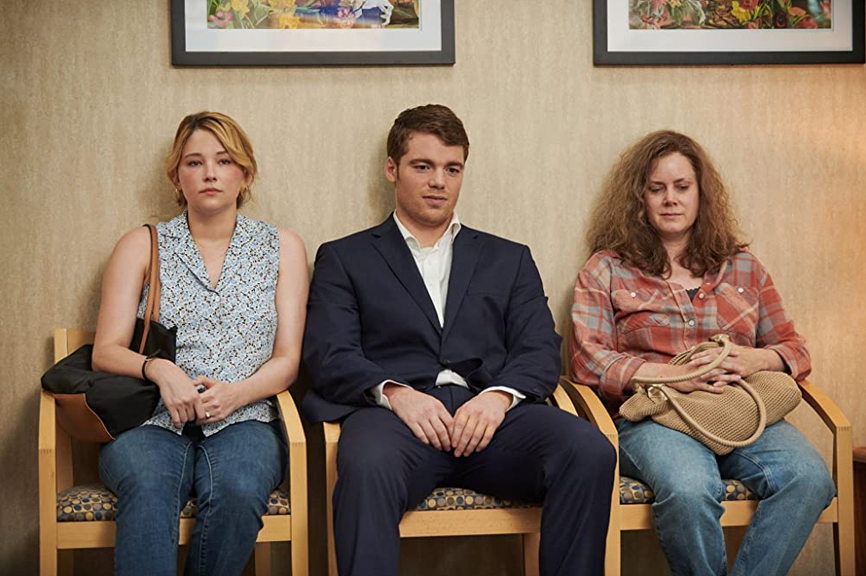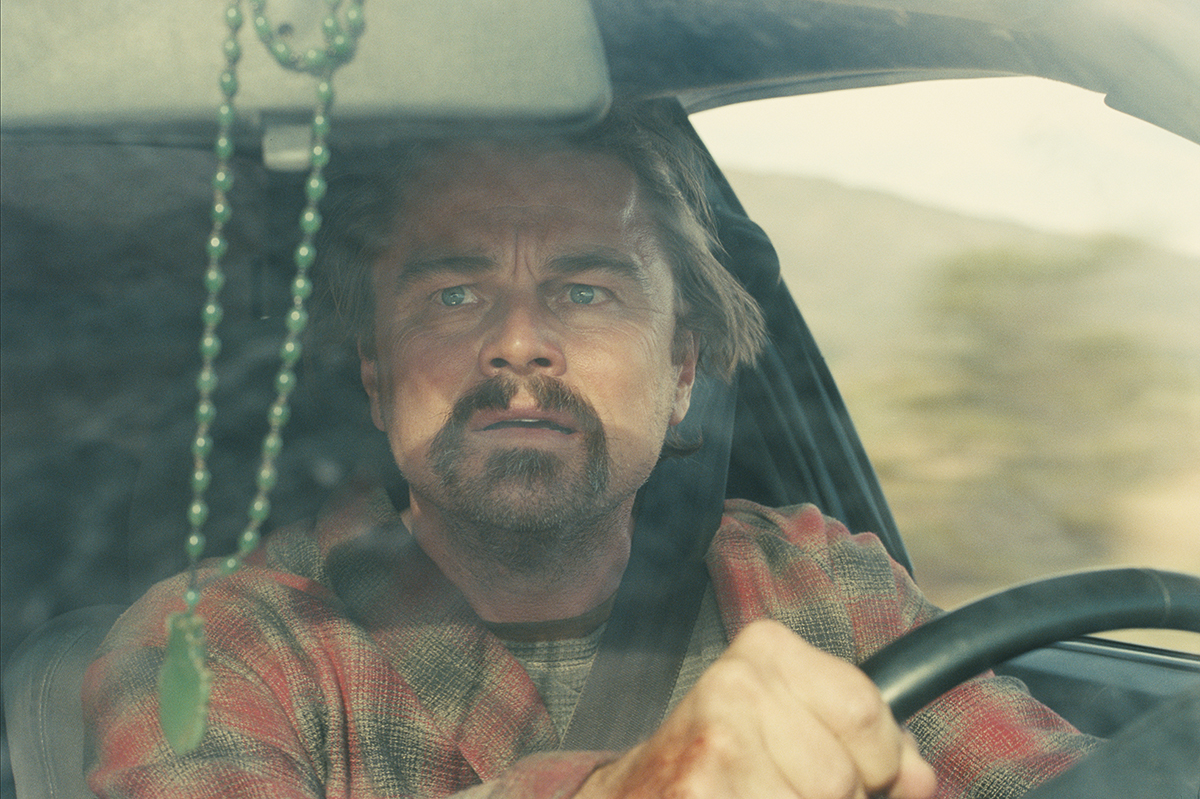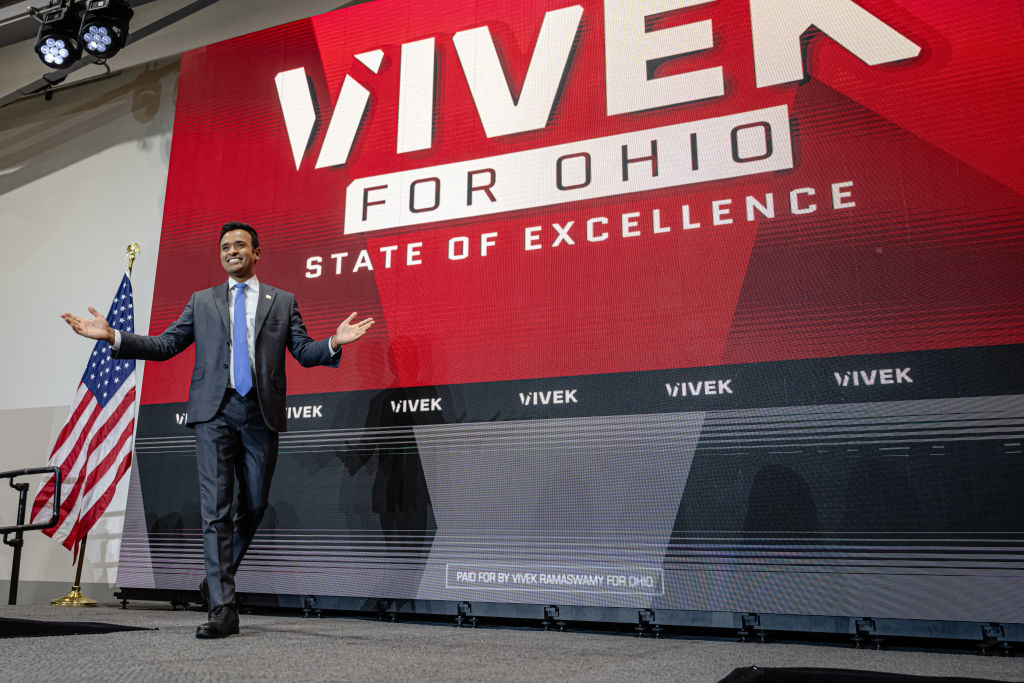Hillbilly Elegy is an adaptation of the best-selling memoir, published in 2016, by J.D. Vance and it’s quite a story. He was brought up in the American Rust Belt amid poverty, violence, addiction, trash heaps, burning cars, hopelessness and, on top of all that, a grandma who, we now know, was the spit of Catherine Tate’s Nan. (It’s Glenn Close, but check it out.) Still, if you can get past Nan — if, if — this film should be an emotionally stirring and moving account of, ultimately, achieving the American dream. (Vance went on to Yale and became a successful investment banker.) But as directed by Ron Howard it isn’t any of that. Instead, this is like being trapped in a seemingly never-ending episode of The Jerry Springer Show.
Hillbilly Elegy is as badly constructed as it is badly directed, although the two may amount to the same thing. It’s told in flashbacks so it’s back and forth, back and forth, back, back, back, forth, forth, forth, with no fluidity whatsoever. (I am thinking of starting a campaign for the return of linear storytelling. I am not expecting Christopher Nolan to sign up.)
At the outset we are forth, I suppose, with J.D. (a bland character blandly played by Gabriel Basso) at Yale, in a panic and phoning his girlfriend — a nothing role for Freida Pinto — because he’s at a smart dinner and doesn’t know what fork to use. I’m already wondering how bright he truly is given he could just wait to see which fork everyone else uses, but that’s by the by. He’s then summoned home by his sister, Lindsay (Haley Bennett), because their mom has taken a heroin overdose.
[special_offer]
He returns to Ohio, where he grew up, although his family are originally ‘hillbillies’ from Kentucky. His mom is Bev, played by Amy Adams who ‘bravely’ put on 15lb for the role and glammed down because a fatter, less glamorous actress wouldn’t have been interested in the work. Obviously. Glenn Close is Bev’s mother, Mamaw, who frumps around in old sweats and is sweary and has to spout clichés like ‘family is goddamned everything’. And if you can’t get past Catherine Tate’s Nan, then none of that matters, as she’s all you will see (‘It’s a fucking liberty!’ I kept expecting her to exclaim). Once in Ohio the narrative rewinds to J.D.’s childhood and we’re off, going back and forth, forth and back. Back, back, back. Forth, forth, forth. Until you as good as have whiplash.
Amid all this to-ing and fro-ing, the film can’t decide on the main character — is it Bev? J.D.? Mamaw? — so isn’t adequately about any of them. Adams may have ‘bravely’ put on the weight but Bev has no interiority at all. She is a habitual user. She is erratic. She hooks up with unsuitable men. She beats up J.D. — who, as a kid, is a bland kid blandly played by Owen Asztalos — to the extent cops have to be called. You have to know why someone is like this in order to empathize, to care. We need to know: how much of Bev’s life is Bev’s fault and how much isn’t? But there is no layering here. When her father dies, and Lindsay is upset, and Bev says to her: ‘It was my dad, not your dad, you little bitch’, I was pretty much done with Bev.
Adams’s performance never feels real, and it’s the same with Close. And there is no context. If I remember rightly, the book connected this community, which is on its knees, to the decline of the steel industry, the direct targeting of opioids, an indifferent government. But all that has been excised, mistakenly. So what you are left with, essentially, is a series of screaming matches and punch-ups, Jerry Springer-style. As for the third act, it doesn’t properly go anywhere, as if the film is as bored of itself as we are of it. Cloth-eared, is the best way of putting it, although I’m also put in mind of Mark Twain who once described someone as ‘knowing the words, but not the music’. And that is also an apt description of what happened here.
This article was originally published in The Spectator’s UK magazine. Subscribe to the US edition here.

























